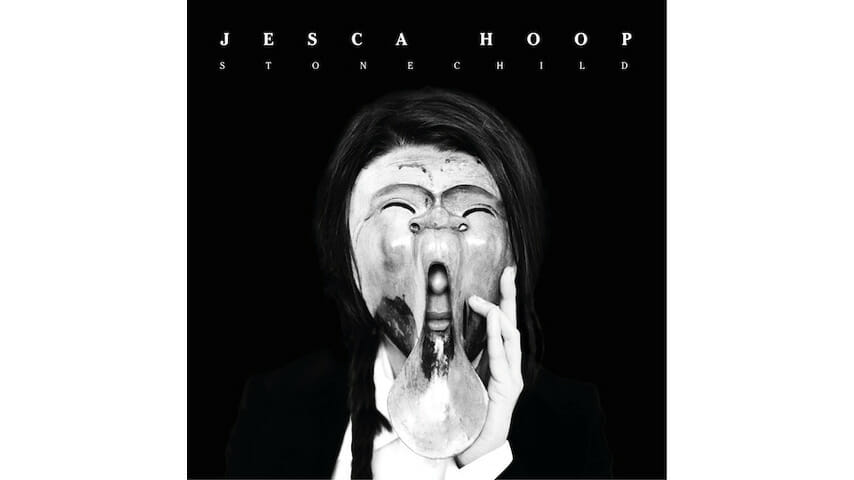Jesca Hoop: STONECHILD

“I’m obsessed with the dark side of religion,” Jesca Hoop said in a 2017 interview. The singer/songwriter, who’s been drifting in and out of mainstream indie-folk for a decade now, was raised as a Mormon in California. Now, she’s challenging religion en-masse and residing in the U.K., but her fascination with the sinister hasn’t waned. If anything, it’s more pronounced than ever.
On STONECHILD, the follow-up to 2017’s Memories Are Now, Hoop goes looking for darkness in places usually reserved for light and love, particularly motherhood. In STONECHILD’s shadowy universe, feelings are frightening, death is a relief and motherhood is more a curse than a blessing. It’s the human relationship that supposedly requires more empathy and sacrifice than any other, but in these twisted tales, that bond between a mother and child is shattered more often than not.
“I love my boys more than I love my girl,” Hoop sings on “Old Fear of Father,” affirming the often scandalous notion that parents pick favorites. The song also speaks to a kind of misogyny so deeply ingrained in us that women themselves perpetuate it. “Don’t look to me to hold you / I shape and mould you,” she sings in an eerie coo, one that sounds like it got lost on its way to a lullaby. “So you can get the ring / While you’re still pretty.” Is that all a mother wants for her daughter? To marry well and young, to pass safely from her arms to that of a protective partner’s? Hoop isn’t afraid to ask. She invades a mother’s subconscious—but not the one fellow folkie Lori McKenna describes on songs like “A Mother Never Rests,” swollen with love and worry. On that song, a mother still thinks of her child “even when she’s sleepin’.” In Hoop’s songs, that preoccupation is a trap.
-

-

-

-

-

-

-

-

-

-

-

-

-

-

-

-

-

-

-

-

-

-

-

-

-

-

-

-

-

-

-

-

-

-

-

-

-

-

-

-








































